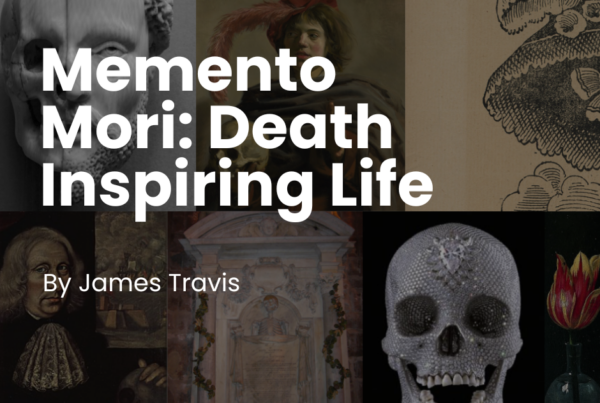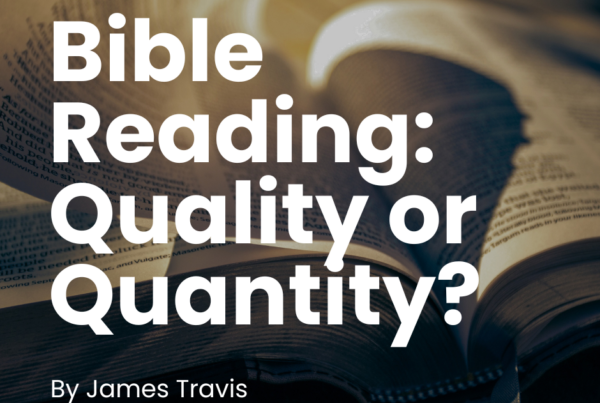
Imagine a holiday in which kids dress up, wander around the neighborhood in costumes, make joyous noise, and receive sweets from all over the place. No friends—I am not speaking of Halloween. Rather, I am referring to an actual biblical holiday that involves costumes, candy and the reading of the scriptures.
“Purim” is the name of the biblical holiday celebrated worldwide by Jewish communities on fourteenth or fifteenth of the Hebrew month of Adar—depending on whether one lives in a walled city (March 12-13 this year). Purim has been celebrated by masquerading for about the last 500 years—starting as a European tradition—despite the fact that masquerading is generally not looked upon favorably by Jewish people (cf. Deuteronomy 22:5). The reason for these festivities is simple—Purim is a joyous day on which the Jewish people celebrate the rescue of their people group, as recorded in the biblical book of Esther.
One of the ways in which the preservation of the Jewish people is celebrated is by reading Megilat Esther (the Scroll of Esther). By reading the entirety of this biblical narrative in the synagogue or other public arena, the Jewish people are reminded of the deliverance of their ancestors from the hands of their enemies. Specifically, they are remembering their rescue from the plot of the tyrannical Persian despot, Haman. Indeed, every time Haman’s name is mentioned during the public reading of Esther, those in attendance boo and rattle noisemakers to demonstrate their displeasure with his memory (cf. Exodus 17:14). Accompanying the reading of the entire book of Esther, Jewish people celebrate with all types of festive activities, eating Oznai Haman (Yiddish: Hamentaschen), and singing typical Purim folk songs like this one:
שושנת יעקב
צהלה ושמחה
בראותם יחד
תכלת מרדכי
The people of Israel (Shoshanat Ya’akov)
Rejoiced and became overjoyed
When together they saw
Mordecai wearing royal blue
תשועתם
הייתה לנצח
ותקוותם
בכל דור ודור
ברוך מרדכי היהודי
Their salvation was from eternity
And their hope is from generation to generation
Blessed is Mordecai the Jew! Blessed is Mordecai the Jew!
In order to better understand the reason for the holiday Purim—even the word “Purim”—it is necessary to know a little bit of the history and setting of the book of Esther. The historical setting of the book of Esther goes back to about the late sixth century BC. This is when many Jewish people from the Jerusalem area were taken into exile by the Babylonians. The Babylonians were then conquered by the Persians, which brings us to the time period in which the book of Esther takes place.
THE STORY
The book of Esther commences by telling the story of King Ahasuerus of Persia—ruler of 127 provinces from the continent of Africa through east Asia. In the third year of his reign, this king has a grand feast in which the kingdom’s aristocrats are at the king’s palace in Susa—the capital of the Persian empire.
During this festival, King Ahasuerus calls his wife, Queen Vashti, to appear before him and his nobles in her royal crown. Vashti, for unstated reasons, refuses to come before the king, which absolutely enrages him (Esther 1:11-12). And so, based on the council of his friends, the king divorces Queen Vashti.
Upon divorcing Queen Vashti, the king misses her (Esther 1:21) and desires to marry again. The king’s servants then travel around the city gathering the most attractive maidens, so that the king might chose his next wife. This is when protagonists Mordecai and Esther appear. Mordecai is Esther’s older cousin and had raised her because she was an orphan. Esther, being remarkably beautiful, is taken into the king’s custody with other young women of the city (Esther 2:7-8).
In a noteworthy turn in the story—when Esther is taken into the custody of the king, she is explicitly commanded by her cousin Mordecai not to reveal her identity as a Jew (Esther 2:10, 20). This is an interesting point of foreshadowing for the reader. King Ahasuerus falls in love with and marries Esther, not knowing her full identity as a Jewish woman. The story could end here, except for the one question that lingers: Why would Mordecai tell Esther not to mention that she is a Jew?
THE SITUATION
At this point in the story another character, Haman the Agagite, advances to a position somewhat akin to a prime minister role in the Persian kingdom. Upon this promotion, the king commands that all should bow down and pay homage to Haman. For reasons unexplained in the text, Mordecai not only refuses to bow down, but also reveals that he is a Jew (Esther 3:4)—doing the very thing that he commanded Esther not to do.
Those somewhat familiar with the 10 Commandments know that the second one explicitly states that you shall not make or bow down to idols. Mordecai may have admitted that he was a Jew and refused to bow down before the Persian leader because treating someone like God was where he had to draw the line. Perhaps there was a crisis of conscience (cf. Exodus 20:2–5a).
Nevertheless, Haman hates the fact that not all people will bow down to him and hates Mordecai—personally. Because of this, he develops a hatred for Mordecai’s people, whom Mordecai had implicated through admitting that he was a Jew. For Haman, it was not enough that everyone else in the kingdom bowed down to him, and it was not enough to kill only Mordecai. Haman determines to kill all of the Jewish people because of Mordecai’s rebellion (Esther 3:6). And so, Haman casts lots in order to determine the dreadful day in which all of the Jewish people would be put to death (Esther 3:7).
Many Bible readers are surprised to find that through all of these happenings, God is not mentioned. He is conspicuously absent. His name is not stated even once. At the time when the Jewish people needed God most, He is apparently nowhere to be found.
THE SILENCE
How many times in our lives have we felt in need, desperate, physically/emotionally/spiritually destitute—and God is absolutely nowhere to be found? God seems absent. God is silent.
HERE IS A PRINCIPLE THAT WE LEARN THROUGH THE REST OF THE BOOK OF ESTHER: SOMETIMES, WHEN CIRCUMSTANCES LOOK DIRE, WHEN WE ARE GOING THROUGH DIFFICULT SITUATIONS AND GOD SEEMS TO BE ABSENT—GOD IS ACTUALLY RIGHT THERE, WORKING EVERYTHING TOGETHER FOR HIS GLORY.
Sometimes, when we have absolutely no assurance that God is concerned about a given situation, He is right there, completely involved in the situation, but not revealing the details of His work.
Here is the amazing thing that we must appreciate about the Esther narrative: God gives us, as readers, insight into a past occasion in which He is intricately involved in human affairs to carry out His purposes. It is this divine providence that we start to see as God—without being named or officially credited with the actions—shapes the circumstances of the characters in order to accomplish His purposes.
For example, the following are specific circumstances in our story that are clearly divinely guided. In our story, it just so happened that:
♦ Esther, out of all of the women, found favor in the eyes of the king.
♦ Esther was a Jew.
♦ Esther gained direct access to the king because of her position as Queen.
♦ Esther and Mordecai were related.
♦ Mordecai gained access to the Persian throne through Esther.
This last fact is key, because upon hearing the plans to slaughter the Jewish people, Mordecai dressed in clothes representing mourning and went to the entrance of the king’s gate. This permitted him to have access to his cousin, Queen Esther, who he convinces to help her own people—the Jews. Mordecai’s message to Esther serves as his plea for personal help and for the lives of all of his people:
“Do not think to yourself that in the king’s palace you will escape any more than all the other Jews. For if you keep silent at this time, relief and deliverance will rise for the Jews from another place, but you and your father’s house will perish. And who knows whether you have not come to the kingdom for such a time as this?” (Esther 4:13–14).
In his message, Mordecai urges Esther not to forget that she is a Jew. She too will feel the effects of Haman’s wicked plot to kill her people. But, Mordecai believes that Esther has been placed in a position of power and influence for the very purpose of helping her people through this time. Esther, in turn, communicates with the king, inviting him and Haman to a series of banquets. During the second of these banquets, Esther reveals to her husband that she is a Jew, and that Haman’s wicked plot to kill the Jews would include her. This is dreadful revelation, not only to the king, but also to Haman, who pleads for his life—but to no avail. Haman is taken away and hung (Esther 7:7-10).
Nevertheless, the redemption of the Jewish people is still not complete. The king of Persia had sealed the edict to kill the Jews with his ring and therefore, the decree could not be overturned (Esther 8:8). This meant that another decree needed to be put into place to counteract the first (Esther 8:10-14). This new decree permitted the Jews to defend themselves against anyone who was still intent on causing them harm (in accordance with the King’s initial command). It also permitted the Jewish people to take force against their enemies over two days, which resulted in the killing upwards of 75,500 people across the Persian Empire (Esther 9:6, 12, 16).
By this, the annihilation of the Jewish people was avoided and their preservation in the Persian Empire was accomplished. Here is the irony—this salvation began on the very same day that Haman had planned for their destruction by the casting of lots (Purim). For the Jewish people, this was a cause for great celebration. And that is why the holiday of Purim was instituted.
Again, through all of this, God is not mentioned. God is apparently not present. God’s title is not stated even once. Salvation from their enemies comes for the Jewish people, and yet the pages of this book are silent as to who gets the credit. At the time when the Jewish people needed God the most, why is his name not even mentioned? Let’s deal with this question for a second. The reality of our story is that, despite what some traditions might suggest concerning how honorable Esther and Mordecai are, some simple observations about them might help us to understand why God may not have been mentioned.
♦ There seems to be no concern for the Jewish law by either of these two main characters.
♦ Esther conceals her Jewish identity (lies by omission) when taken into the king’s court at the command of Mordecai. The implication of this is that Esther had to have violated the Torah (purity, Sabbath, food laws).
♦ It is not until there is severe danger, and perhaps a threat from her uncle, that Esther reveals her true identity.
♦ Esther marries a gentile king. Intermarriage with non-Jewish people is not explicitly forbidden, but we do not have any indication that the king has any intention of following the one true God of Israel.
Taking these observations into consideration, it does not seem like Esther or Mordecai are particularly concerned about following the Law that God gave the Jewish people. It does not seem like Esther or Mordecai are especially interested in inviting God into their narrative.
Despite the fact that God is not overtly present in the lives of these people, and does not plainly show up in the book, He still demonstrates His ability to control all circumstances and situations for His own glory. Why did God save the Jewish people while—quite frankly—not being invited into the story? A biblical principle that we must remember is the following: God does not save people because they are extraordinary in and of themselves. God saves people because He is a magnificent God demonstrating extraordinary love for humans, who by nature do not invite Him into their story (Romans 5:8).
This is what happened at the first Purim festival. God saved the Jewish people from their enemies—not because they were extraordinary in and of themselves. God saved them because He is an extraordinary, faithful God of integrity.
GOD’S PROMISE
You see, all the way back in the first book of the Bible, God promised a man named Abraham that all the nations of the earth would be blessed through him (Genesis 22:18). This indeed happened by God choosing Abraham’s son, Isaac, and Isaac’s son, Jacob—again, not because of anything they did, but for the purposes of God (Romans 9:6-13). As we continue to read through the Old Testament, we see that Jacob—who was renamed Israel—had 12 sons. Out of these 12 sons of Israel, his son, Judah—the name from which we get the title of the “Jewish” people—was chosen to bear the royal lineage (Genesis 49:8-10). King David came from the people of Judah, and Jesus the Messiah was a descendant of King David (Matthew 1:3-6, 16). Jesus came from the Jews, to the Jews (John 1:11-14). God was determined to carry out His promise of bringing blessing to all nations through the Jewish people by way of the person and the work of Jesus the Messiah.
One writer states it like this:
“Esther is part of a much larger story that runs all the way from Abraham to Christ and, through him, to the church. If Haman had succeeded, the Jewish people as a whole would have been destroyed, and the story of God’s saving work in and through Abraham’s descendants would have come to an end. There would have been no fulfillment in Christ, and therefore, no Gospel and no Christian church. Nothing less than that was at stake” (Barry G. Webb, ESV Study Bible, 961).
Our God is a God of integrity. He is a God who keeps His word. God’s integrity is not contingent upon human beings. Our God does not—cannot—let His word fail (Romans 9:6), and He is willing to work behind the scenes of humanity’s vain activity and inattentiveness to His work in order to carry out that which He has promised.
PURIM AND CHRISTIANS
The book of Esther is part of our own heritage as Christians—not just because it is a small book tucked away in a part of our Bibles where books are difficult to find. Rather, it is because it is another part of the greater story of redemption showing God’s love for humanity by bringing someone from the line of Abraham, Isaac, Jacob, Judah and David to save humankind from their problem of sin.
The fact that God is not mentioned at all in Esther seems to point out that it is during those times of silence—the times in which we do not overtly see God’s hand at work—that God is most active. Sometimes, God is simply in the act of preserving and saving our lives so that He might accomplish His purposes in and through us.
The preserving power of God is not limited to one people group that He used for His purposes. For Christians, Purim serves as an occasion in which we are reminded of God’s providence and sovereignty over all human lives and over our lives specifically. We are all the beneficiaries of God’s providence. As God guides all circumstances for His glory, we as humans are blessed to get a glimpse of what God does through people—including ourselves.









